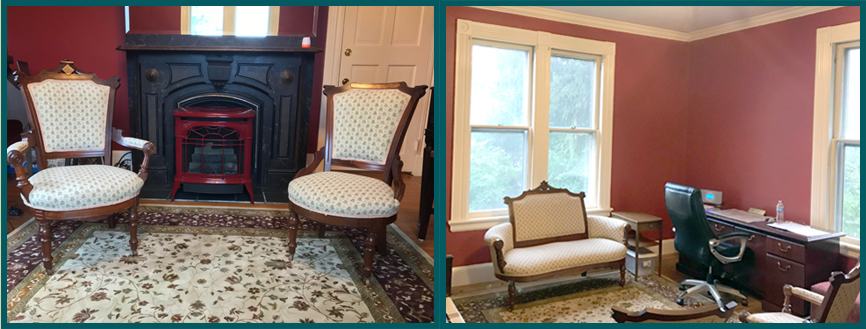






|
||||
Behavioral / Mental Health OutpatientOur providers can assist with the treatment of a variety of conditions, including depression, anxiety, coping with life changes, trauma, grief, anger, intimacy, blended families, caregiver issues, co-morbidity, ADHD, bi-polar disorder, adoption, foster care, court, substance abuse, LGBTQ issues, and more. Individual Counseling: is a joint process between a therapist and a person in therapy. Common goals of therapy can be to inspire change or improve quality of life. Adolescent Counseling: We provide professional adolescent counseling to help your adolescent navigate through this rough time. During the adolescent, teenager years between 13 and 19, young people experience physical growth, mental development and emotional changes. Children Counseling: childhood depression, attention-deficit hyperactivity disorder, or abuse. Treat a wide range of mental and emotional problems in children. Family Counseling: Families can be a source of support, encouragement and love but sometimes relationships within families are put under strain and family members feel isolated or overlooked. Family counselling can help when siblings aren't getting on, or when parents and children are going through a divorce or separation. Marriage Counseling: Marriage counseling can help couples in all types of intimate relationships — regardless of sexual orientation or marriage status. In other cases, couples seek marriage counseling to improve a troubled relationship. You can use marriage counseling to help with many specific issues Group Sessions: is a form of psychotherapy that involves one or more therapists working with several people at the same time. Anger Management Counseling and Sessions: Out-of-control anger leads to a pattern of negative behavior that can hurt your relationships, career, even your mental and physical health. Anger management classes can help you unlearn these negative responses to anger and help you regain control. An anger management counselor can help you to recognize early signs of anger, and teach you to take the necessary steps to relax and deal with situations in a positive way. Parenting: is a type of psychotherapy that helps parents cope with child-related challenges and difficulties. Health and Wellness: also known as health educators, teach clients behaviors that can encourage wellness and improve their quality of life. In other words, as a wellness counselor, you may develop treatment programs that inspire clients to make healthy lifestyle changes. Solution-focused brief therapy (SFBT): places focus on a person's present and future circumstances and goals rather than past experiences. In this goal-oriented therapy, the symptoms or issues bringing a person to therapy are typically not targeted. Cognitive behavioral therapy (CBT): is a type of psychotherapeutic treatment that helps patients understand the thoughts and feelings that influence behaviors. CBT is commonly used to treat a wide range of disorders, including phobias, addictions, depression, and anxiety. Trauma-Focused Cognitive Behavioral Therapy (TF-CBT): is an evidence-based treatment for children and adolescents impacted by trauma and their parents or caregivers. Research shows that Art Therapy: involves the use of creative techniques such as drawing, painting, collage, coloring, or sculpting to help people express themselves artistically and examine the psychological and emotional undertones in their art. With the guidance of a credentialed art therapist, clients can "decode" the nonverbal messages, symbols, and metaphors often found in these art forms, which should lead to a better understanding of their feelings and behavior so they can move on to resolve deeper issues. Dialectical Behavior Therapy (DBT): is an evidence-based psychotherapy designed to help people suffering from borderline personality disorder. It has also been used to treat mood disorders as well as those who need to change patterns of behavior that are not helpful, such as self-harm, suicidal ideation, and substance abuse. Mediation: is a less formal and less expensive process than going to court. Mediation is intended to be less antagonistic than battling in court and can result in an agreement created by the parties, rather than an agreement created by a judge. Video Counseling (TeleHeath): HIPAA Compliant video counseling from the comfort of anywhere. Sports Therapy-Doc Wayne Trained: The curriculum is derived from two therapeutic models: the Attachment, Regulation, and Competency (ARC) Framework and Dialectical Behavior Therapy (DBT). By combining these models with a sport-based approach, Doc Wayne coaches engage youth who may not progress in traditional talk therapy. Creating Champions focuses on four main constructs: Resilience, Confidence, Teamwork, and Communication. EMDR Trained Therapy: This method involves moving your eyes a specific way while you process traumatic memories. EMDR's goal is to help you heal from trauma or other distressing life experiences. Motivational interviewing: Counseling method that helps people resolve ambivalent feelings and insecurities to find the internal motivation they need to change their behavior. Bounce Back Trained: Cognitive-behavioral, skills-based, group intervention aimed at relieving symptoms of child traumatic stress, anxiety, depression, and functional impairment among elementary school children (ages 5-11) who have been exposed to traumatic events. Play Therapy: Range of methods of capitalizing on children's natural urge to explore and harnessing it to meet and respond to the developmental and later also their mental health needs. MATCH: Designed for children ages 6-15, to treat four common behavioral health concerns among children, including anxiety, depression, post traumatic stress, and behavior problems.
Care Giver Counseling, Substance Abuse Disorder: a combination of treatment and support to help people break free from drug or alcohol addiction. We also deal with active clients, in recovery, or families/ individuals dealing with someone in their life. Addictions: We deal with clients who may be active or in recovery for Alcohol, Gambling, or substance. Employee Assistance Program (EAP): Refers to the confidential support provided through a work-based benefit that offers free, short-term assistance for a wide range of personal and work-related issues, such as stress, family problems, financial concerns, and substance use. EAP counselors provide assessments, counseling, and referrals to help employees resolve problems that can affect their well-being and job performance. (Contact your medical insurance or place of employment to see if they offer this program.) If you are the owner of the company, reach out to us to set up a contract.
Reunifications & Supervised VisitsReunification Therapy: The main goal of reunification therapy is to reintroduce a parent (or parents) back into a child’s life in a safe, controlled, and therapeutic manner. The process of reunification therapy can be a very long one, but it designed to ensure a safe environment for the children and parents involved to create a new and secure bond with one another under the close supervision of a clinician. The most important idea of reunification therapy is the long-term goal of reconnecting the parent and child for a long-lasting bond. Court Involvement: Providers and Staff who have experience working with the court and attorneys. Psychiatric MedicationMedication and Case Management
Group and Family Sessions |
||||
| ||||



 DWI/DUI Sessions: - Outpatient addiction treatments offer a variety of programs for people with DUI or DWI convictions, including drug and alcohol evaluations and assessments, deferred prosecution, and alcohol drug information school.
DWI/DUI Sessions: - Outpatient addiction treatments offer a variety of programs for people with DUI or DWI convictions, including drug and alcohol evaluations and assessments, deferred prosecution, and alcohol drug information school.